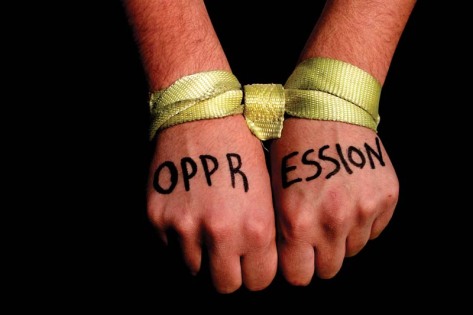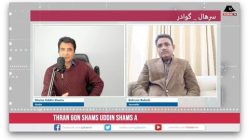We live in a society where seeking justice is treated as an unforgivable crime. Demanding one’s rights is seen as breaking the law. Asking for the well-being of loved ones is branded as rebellion. Even pens and books are regarded as dangerous weapons. Students who dare to hold a pen are shackled in chains, for to write and unveil the dark realities of society and the system is labeled a terrorist act—thus, they are called terrorists. A love for books, being a bibliophile, or striving to reveal true history is portrayed as an assault against the state.
I often drive myself into deep thought: is the freedom of expression, guaranteed under Article 19 of the Constitution of 1973, truly upheld? Are we genuinely granted the right to life and liberty, as enshrined in Article 9? Can we launch movements or hold protests to raise our voices against injustices and barbarism, as promised under Article 16? Or is the law, and the Constitution itself, nothing more than a piece of paper?
Even the Universal Declaration of Human Rights (1948) guarantees the right to life, liberty, equality, and justice. Article 3 provides the right to life and liberty. Article 4 forbids slavery or servitude. Article 5 states that no one shall be subjected to torture or barbarism. Article 7 ensures that all are equal before the law, without discrimination. Article 9 prohibits arbitrary arrest or detention. Article 15 guarantees everyone the right to a nationality. Articles 18 and 19 affirm the right to freedom of thought, conscience, and expression. Article 20 protects the right to peaceful assembly. Article 26 guarantees the right to education for all.
Yet, are these rights truly upheld in practice? Are these laws and declarations merely beautiful words on paper, or are they meant to shield the powerful while leaving the oppressed unprotected? Are laws made to preserve citizens’ rights, or to deprive them of their most basic freedoms? I have come to believe that the law is a sword with two edges: one edge sheds the blood of oppressors and curtails tyranny, while the other fails to fulfill its duty as the guardian of rights.
Thousands of sons and daughters are subjected to enforced disappearance on a daily basis. They are tortured for no crime. Brothers are dragged and thrown into cars in front of their helpless sisters—whose scarves are snatched as they are harassed—before being taken away into dark dungeons. Mothers, screaming and weeping, cry out: “Leave my son, he has done nothing!” They fall to their knees, bowing at the feet of the oppressors, begging for mercy. Yet their pleas go unheard, their cries lost in silence.
Why is the state still silent? Why do our questions go unanswered? Our cries unheard? Our helplessness unseen? Our painful stories untold?
Still, the helpless mother of Chairman Javid Baloch sits at the door of her broken house, her weary eyes fixed on the path where he once used to return. His sister yearns for his laughter, enduring the endless wait. His brother, desolate and restless, knocks on every door, pleading for news of his missing sibling—but return home with disappointment and unanswered questions.
Chairman Javid Baloch, a law student at Karachi University, Chairman of the Baloch Students Front, and a resident of Awaran, was forcibly dragged from his room, tortured, and abducted on 23rd April 2025 from his residence in Gulistan-e-Johar, Karachi. Today marks over four months, yet he has neither been released nor produced before a court. It seems as if the state itself has no trust in its own laws and courts.
Similarly, the family of Zahid Baloch has been sitting in protest camps for more than twenty days. Heavy rains, scorching heat, and state brutalities have not broken their determination. Zahid, an IR student at Karachi University, was forcibly abducted on 17th July 2025. He was the sole breadwinner of his family, driving a rickshaw part-time to make ends meet. Today, after forty-one days, he is still missing.
Another case is that of a publisher and bookseller, a true lover of books, Changez Sahir Baloch, the General Manager of Ilm-o-Adab Publishers, Karachi, who was forcibly abducted on 21st July 2025. Today marks thirty-five days, yet there is no trace of him. Before him, Lala Faheem Baloch, the former General Manager of Ilm-o-Adab Publisher, was also abducted on 26th August 2022, tortured for over three months, and only then released.
By abducting students, political activists, educators, and those who carry the love of books, the state has proved one bitter truth: it is terrified of pens, terrified of knowledge, and terrified of books.
And they are not alone. The state has abducted countless students and political activists in an attempt to silence the voice of the Baloch. Among them are Zakria Ismail, Hakeem Baloch (both students of law), Anees Baloch, Shohaib Baloch, Sadiq Baloch, Sagheer Baloch, Ikrar Baloch, Ghani Baloch, the Central Committre member of National Democratic Party, and many others—still suffering in torture cells, their families left with only grief, silence, and endless waiting.
Is this really the law, injustice, or alienation—that writers, poets, political activists, and even law students are subjected to enforced disappearance? They are trapped in dark dungeon cells, their hands and feet shackled, forced into silence. Is this the law or the Constitution—that students and activists can be abducted and killed in staged encounters, even without a crime or a fair trial? I have never witnessed a law, anywhere in the world, so swift and merciless in extinguishing the bright lights of a nation—killing, mutilating, and discarding its sons and daughters.
When the pen, books, law, and justice are seen not as instruments of enlightenment but as weapons, when national laws, the Constitution, international law, and even the Universal Declaration of Human Rights remain only words on paper, then it becomes necessary—indeed, obligatory—to ask: for whom does the law truly exist? For the oppressors, or for the oppressed?








Add comment